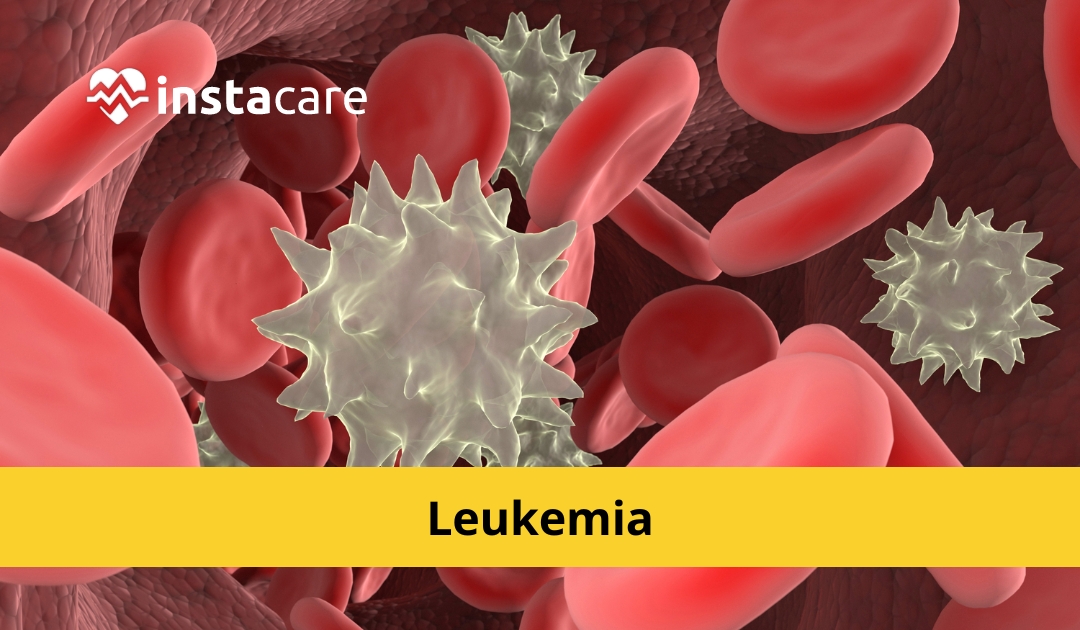Leukemia is a type of cancer that develops in the blood and
bone marrow. It affects both adults and children, but it’s more common in
children. Leukemia starts when normal white blood cells change and start
reproducing uncontrollably without any control signals from their body. When
too many leukemia cells accumulate, they block the production of normal healthy
red blood cells and platelets, which can cause dangerous medical complications
like anemia or infections if left untreated. If you're concerned about symptoms
that may indicate leukemia, read on to learn more about its types, causes,
signs & symptoms as well as preventive measures for prevention and
different treatment options available for those afflicted with this disease.
Leukemia Symptoms
Leukemia can be a tough diagnosis to face. It's a blood
cancer that can progress rapidly, so recognizing the symptoms early on is key.
Some of the most common symptoms of leukemia include persistent fatigue,
weakness, or pale skin, which may be a result of anemia. Fever, night sweats,
and unexplained weight loss may also be signs that it's time to consult with a
medical professional. Additionally, swollen lymph nodes, bleeding or bruising
easily, and frequent infections can all be symptoms of leukemia. Knowing the
symptoms can help you get the treatment you need quickly and effectively, so if
you're experiencing any of these things, be sure to speak up and reach out for
help.
Leukemia Signs
Leukemia is a type of cancer that affects the blood and bone
marrow. It begins in the bone marrow, where blood cells are produced.
Unfortunately, this type of cancer can be hard to detect in its early stages
because many of the symptoms are similar to those of other illnesses. However,
there are some specific signs to watch out for. These include fatigue,
weakness, weight loss, fever, frequent infections, bruises or bleeding easily,
bone or joint pain, and swollen lymph nodes. If you are experiencing any of
these symptoms, it is important to speak with your healthcare provider to
determine if further testing is needed. Don't wait to seek medical attention if
you are concerned about leukemia or any other health issue.
Leukemia Causes
Leukemia, a type of cancer that affects the blood and bone marrow, is a complex disease with multiple potential causes. While the exact triggers are not yet fully understood, some risk factors have been identified. Exposure to high levels of radiation or certain chemicals, such as benzene, is one possible cause. Inherited genetic mutations can also increase the likelihood of developing leukemia. Additionally, certain viruses, such as the human T-cell leukemia virus and the Epstein-Barr virus, have been linked to certain types of leukemia. Despite these potential causes, most cases of leukemia occur sporadically with no apparent trigger. Understanding the causes of leukemia is crucial to developing effective prevention and treatment strategies, and the ongoing research in this field is crucial to improving the lives of those affected by this devastating disease.
Leukemia Types
Leukemia is a type of cancer that affects the blood and bone
marrow. There are several different types of leukemia, each with its own set of
characteristics and treatment options. The most common types of leukemia
include acute lymphoblastic leukemia (ALL), chronic lymphocytic leukemia (CLL),
acute myeloid leukemia (AML), and chronic myeloid leukemia (CML). Each type of
leukemia is unique in terms of its causes, symptoms, and prognosis. It is
important for individuals who have been diagnosed with leukemia to work closely
with their healthcare provider to determine the best course of treatment based
on their specific type of leukemia. With advancements in cancer research and
treatment, many individuals with leukemia are able to live long and fulfilling
lives.
Leukemia Treatment
Leukemia is a punishing diagnosis, but fortunately,
treatment options have improved substantially in recent years. Physicians
typically rely on chemotherapy and radiation to kill cancerous cells and bring
about remission. Patients may also receive targeted therapies or stem cell
transplants, which can offer even greater hope for beating this stubborn
disease. These treatments can be intense and sometimes come with a host of side
effects, but the rewards of surviving cancer are immeasurable. With a range of
treatments available and a growing number of success stories, those fighting
leukemia can feel confident that they are not alone in their fight.
Conclusion
Despite being a serious illness, with appropriate diagnosis and treatment, leukemia can be managed. It is essential to seek medical attention as soon as possible if you or someone you know experiences one or more of the symptoms discussed herein. Early detection ensures that your healthcare provider can prescribe the most effective treatment for your particular condition. Additionally, lifestyle changes such as eating healthier, exercising more frequently, and reducing stress may also help improve your overall health and reduce the risk of developing leukemia. Finally, attend routine check-ups so that any abnormalities can be identified before they become dire. With increased knowledge and early intervention, it is possible to control leukemia and optimize your quality of life.
Please book an appointment with the Best General Physician in Lahore, Karachi, Islamabad, and all major cities of Pakistan through InstaCare, or call our helpline at 02137136090 to find a verified doctor for your disease.
Source: https://instacare.pk/blog/leukemia-symptoms-causes-types-treatment


